He may have had just one term in the White House but it came at a critical time for the nation, as a whole, and for the auto industry, in particular. Former President Jimmy Carter, who passed away over the weekend at the age of 100 oversaw changes to automotive safety and emissions regulations. He was also in the Oval Office at a time of a major oil embargo, an assault by automotive imports and a time of reckoning for Detroit’s automakers – including the near collapse of Chrysler Corp.
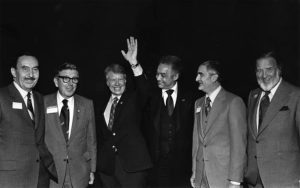
Jimmy Carter, waving, with, from left, General Motors President Pete Estes; UAW President Leonard Woodcock; Detroit Mayor Coleman Young; Chrysler Chairman John Ricardo and Ford Chairman Henry Ford II
When a little-known Georgia governor pulled off a surprise victory in the November 1976 presidential election, few had a clue as to the turmoil that would dog President Jimmy Carter over the next four years. The country had just celebrated its bicentennial but would soon face an array of challenges, including a second Mideast oil embargo which helped trigger runaway inflation and, for the auto industry, its biggest crisis since the Great Depression and World War II.
Carter, who died on December 29 at the age of 100, had a major influence on the U.S. auto industry. His administration enacted major safety and environmental regulations, deregulated energy and transportation markets, attempted to rein in runaway inflation that drove auto loans up to 20% or more and helped bail out the Chrysler Corp. with a first-ever federally-backed loan guarantee.
By the time Carter left office in January 1981, Chrysler and its crosstown rivals would struggle through the worst of a deep recession. But they would never dominate the American automotive market as they had when the former peanut farmer first sat down in the Oval Office.
A “hero” under fire
“My father was a hero, not only to me but to everyone who believes in peace, human rights, and unselfish love,” Chip Carter said in a statement issued by the Carter Center based in the former president’s home town of Plains, Georgia.
A one-time peanut farmer, Carter went on the become the Peach State’s governor and then the unlikely 1976 Democratic nominee, toppling Gerald Ford, a long-time Congressional leader who became president after Richard Nixon’s resignation due to the Watergate Scandal.
Historians today hold a mixed view of Carter’s term in office. They generally hail his part in negotiating a historic peace agreement between Israel and Egypt – for which Carter would win a Nobel Prize.
“His significant role in achieving the peace agreement between Egypt and Israel will remain etched in the annals of history,” Egyptian President Abdel Fattah al-Sisi wrote in a post on X.
But the new president inherited a number of worsening challenges, notably out-of-control inflation that saw mortgages and car loans shoot to record levels. That was a key factor in the near-collapse of the U.S. new car market. In 1977, Carter’s first year in office, Americans bought 14.4 million vehicles. By 1980, when he failed to secure re-election, that had plunged to just 11.2 million.
“A crisis of confidence”
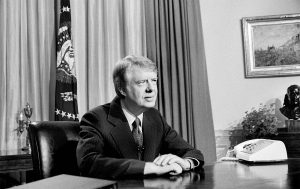
As president, Jimmy Carter struggled to deal with an array of challenges, including the Iranian oil crisis.
Inflation was just part of Carter’s challenges. On November 4, 1979, militants assaulted the American embassy in Tehran, taking 53 hostages. A rescue bid failed when helicopters collided in the desert. In response, Iranian leaders refused to release their captives until January 20, 1980, hours after new President Ronald Reagan was inaugurated.
The fall of Iran’s shah also led to the second oil boycott staged by OPEC, then the overwhelmingly dominant supplier of imported oil to the U.S. That triggered shortages and long lines at the pump – while driving up energy prices and worsening inflation.
Carter attempted to get on top of that crisis by opening up America’s strategic oil reserves and lifting price controls on domestic oil – though he also pushed for a windfall tax on domestic producers.
The president’s efforts achieved marginal success, at least initially, emboldening critics. He took heat for a “fireside chat” from the Oval Office when he appeared in a sweater and urged Americans to turn down their thermostats.
Carter himself bemoaned what he described as a worsening “crisis of confidence” among Americans who questioned the country’s ability to address its challenges.
Helping hand for the auto industry
It had long been a mantra that “when the economy catches cold, the auto industry gets pneumonia.” While his overall policies veered to the left of center, Carter took a number of steps to help an industry in crisis.
Carter was an avowed environmentalist and, especially in the first half of his term, backed new automotive emissions and fuel economy rules. Regulators also enacted new seatbelt mandates, as well as the first airbag requirements – which would be tied up for years in the courts/
As the economy worsened, however, Carter adopted a more pragmatic approach – which became apparent in a July 1979 speech during which he said, “We will protect our environment. But when this nation critically needs a refinery or a pipeline, we will build it.”
For the auto industry, Carter authorized steps to ease a number of key emissions and safety regulations, some of those rules set by the then-new Department of Energy he had authorized as one of his first major acts.
Chrysler gets a bailout
Carter would long lament Detroit’s reluctance to embrace more fuel-efficient vehicles. That would cause a major crisis for the domestic manufacturers once the Iranian oil embargo took hold. Not only did car sales tumble but millions of buyers began abandoning brands like Ford, Chevrolet and Chrysler in favor of downsized, fuel-stingy products from Japan. While Detroit’s Big Four – then including American Motors – still held a dominant share of the market, their downward trend was obvious by the time Carter left Washington.
Layoffs and plant closings made seemingly daily headlines. And while all the domestic manufacturers saw earnings fall deep in the red, Chrysler CEO Lee Iacocca made it clear the number three automaker was set for bankruptcy without significant concessions from all its stakeholders. That included unions, suppliers, investors and the federal government which was being asked for a $1.2 billion loan guarantee. Without everyone’s buy-in, Iacocca said during a 1980 news conference, “then the pieces of the mosaic fall off the wall.”
Everyone involved convinced that incoming Pres. Ronald Reagan would scuttle a bailout, fFrantic negotiations in Washington led to a last-minute deal.
“It’s important to have Chrysler preserved as a viable, competitive entity, not only to protect jobs involved, but to protect the competitive nature of the American automobile industry in its competition with foreign suppliers and in the provision of good products at a competitive price for the American consumer,” Carter said after signing the Chrysler Corporation Loan Guarantee Act on Jan. 7, 1980.
His legacy
Carter’s legacy is a mixed one and covers a broad political spectrum. He was an advocate of traditional Liberal positions on issues like poverty, civil and human rights and the environment. But he also took a number of steps to free up the business community from regulations.
That included lifting mandates restricting the airline, shipping and telecom industries. The auto industry benefited from a number of those moves. The business community at large, he later said, was “quite helpful and enlightened” in helping form policies that gave consumers more choice and drove down costs – of airline tickets and phone service, among other things.
In what would become the longest post-presidential period in history, Carter remained active in a number of ways, attempting to use his devout faith as a beacon in efforts such as helping build homes with Habitat for Humanity.
Jimmy Carter had suffered from a number of ailments in his later years, including brain cancer. Carter’s wife of 77 years, Rosalynn, passed away in 2023, shortly after the former president entered hospice care. He died on December 29, 2024 at the age of 100.

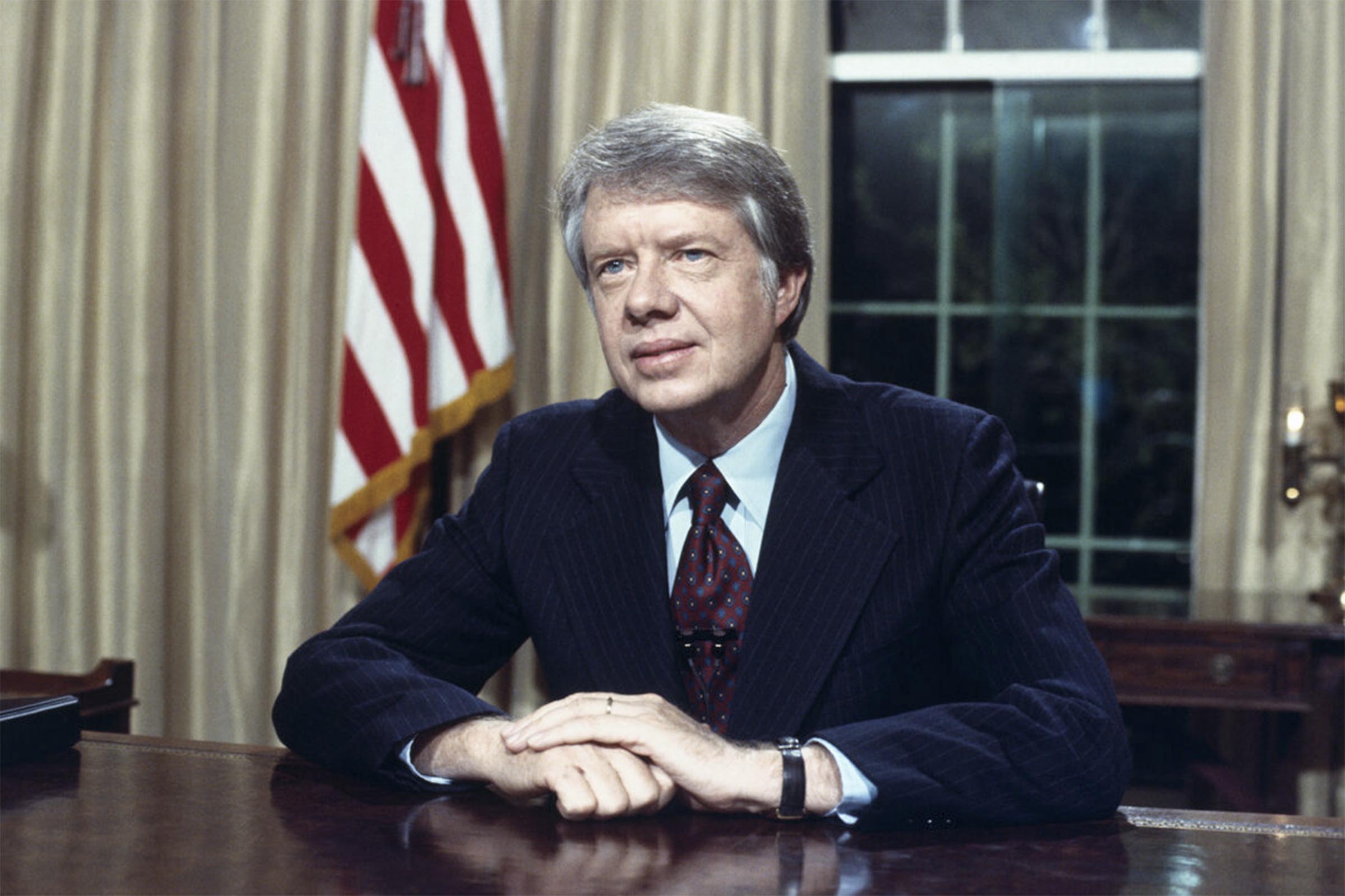
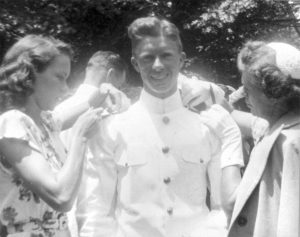
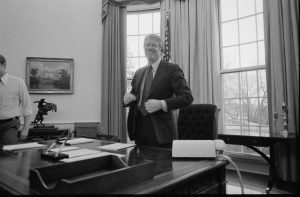
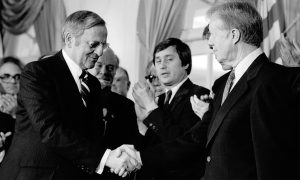
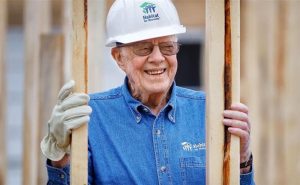
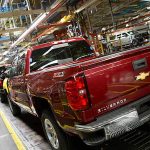

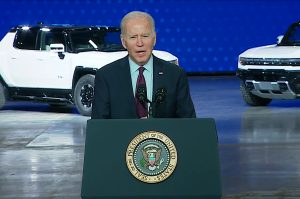
For those not interested in reading all the words above:
Jimmy Carter was the worst US president ever. At least until Biden.